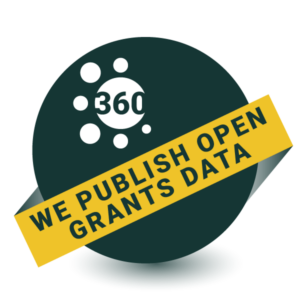Equity, Diversity and Inclusion
Our values: We believe in diversity, valuing difference and tolerance.
Our beneficiaries: Are children, young people and adults who use English as a second or additional language. This includes learners, refugees, asylum seekers, migrants, job seekers, victims of crime and/or people with convictions.
Our strategy: Sets out our ambitions to empower beneficiaries to overcome exclusion through language education and includes our strategic objectives and how we plan to achieve them.
Our DEI work: Is guided by the nine ‘Pillars’ of good practice on DEI as identified by the Association of Charitable Foundation’s report Diversity, Equity and Inclusion: The Pillars of Stronger Foundation Practice.
Programme Reach and Impact
Information on how the Foundation’s programmes are creating opportunities, changing lives and empowering beneficiaries to overcome exclusion through language education in order to access education/training, employment and justice, can be found in the following sections of this website:
- Impact Report.
- EAL Programme.
- ESOL Programme.
- Criminal Justice Programme.
- About Us – including our vision, mission and values.
The Foundation generates evidence through funding research and grant funding partnerships and projects. The Foundation builds partnerships with academic institutions, charities, specialist organisations, schools and community groups. These partnerships influence policy and practice, lead to the development of tools and resources, and provide training and best practice advice and guidance. The Foundation’s partnerships with others also includes how language overlaps and is interdependent with other protected characteristics. Below are examples of recent partnerships with organisations working with diverse communities, and research partnerships.
Impact through Partnerships
-
Examples of our partnerships include:
The partnership with the children’s communication charity I CAN, looks at the interconnection between EAL and Speech, Language and Communication Needs (SLCN). The project aims to raise awareness of how to identify learners who use EAL and have a SLCN, and how to support those learners and their families. Please watch this webinar recording to find out more.
This project identifies good practice in supporting deaf children with English as an Additional Language. This practical project develops resources and guidance for specialist and mainstream education professionals on how to provide quality support for deaf children who use EAL to develop communication and language skills.
The Foundation produces advice and guidance flyers in nineteen languages which are designed to help parents who speak English as an Additional Language to understand the English school system, how to engage with the school and how to support their child’s education. Schools can download these flyers and share them with parents who speak EAL.
This partnership is looking at how English for Speakers of Other Languages, the criminal justice system and gender interconnect. The project supports women who have been victims of gender-based violence or trafficking. Provision is offered through ‘Cultural Mediation’, that is to say an interpreter not only from a language perspective but also someone who can translate through an additional cultural lens, to ensure the victim receives the right support and the benefits they are entitled to.
This partnership is offering legal advice and support to people in Harrow who speak English as an Additional Language and as the project's reputation has grown they have been taking on a number of serious cases including rape, and a victim of a racially motivated attack.
The Foundation’s pilot English for Speakers of Other Languages (ESOL) Programme is currently funding five partners.
The University of Oxford was commissioned to undertake a five-year research programme, which investigated the relationships between English as an Additional Language, proficiency in English and the educational achievement of EAL learners at school. The research also examines how these interrelate with other factors including gender, low socio-economic status and ethnicity. The four reports provide evidence on the heterogeneity of EAL learners as well as recommendations for policy-makers and schools on how best to support learners who use EAL to fulfil their academic potential.
Impact through Influencing Policy
The Foundation responds to Government and other stakeholder consultations. Recently these have included:
- A submission to the Education Select Committee from the Foundation shared our research evidence on the underachievement of particular ethnic groups.
- A response to the call for evidence from Runnymede to provide ‘the independent civil society perspective to the United Nations Committee on the Elimination of Racial Discrimination (CERD) by examining the situation of race and racism in England.
- A submission to the Government’s second consultation on the Victims’ Code of Practice, highlighting the need for strengthened rights around the provision of interpretation and translation services. As a result, the responsibility of a victim to request an interpreter was removed from the final code, which states that “all translation or interpretation services must be offered free of charge to the victim.”
Impact through Grant Making
The Foundation is working with 360Giving to provide information and transparency on our grant making. Organisations interested in working in partnership with the Foundation are encouraged to visit our ‘Partner with Us’ page.
360Giving – open data
This work is licensed under the Creative Commons Attribution 4.0 International License. This means the data is freely accessible to anyone to be used and shared as they wish. The data must be attributed to The Bell Foundation.

Watch how some of our work has been covered by the BBC and meet our Chair of the Board:
